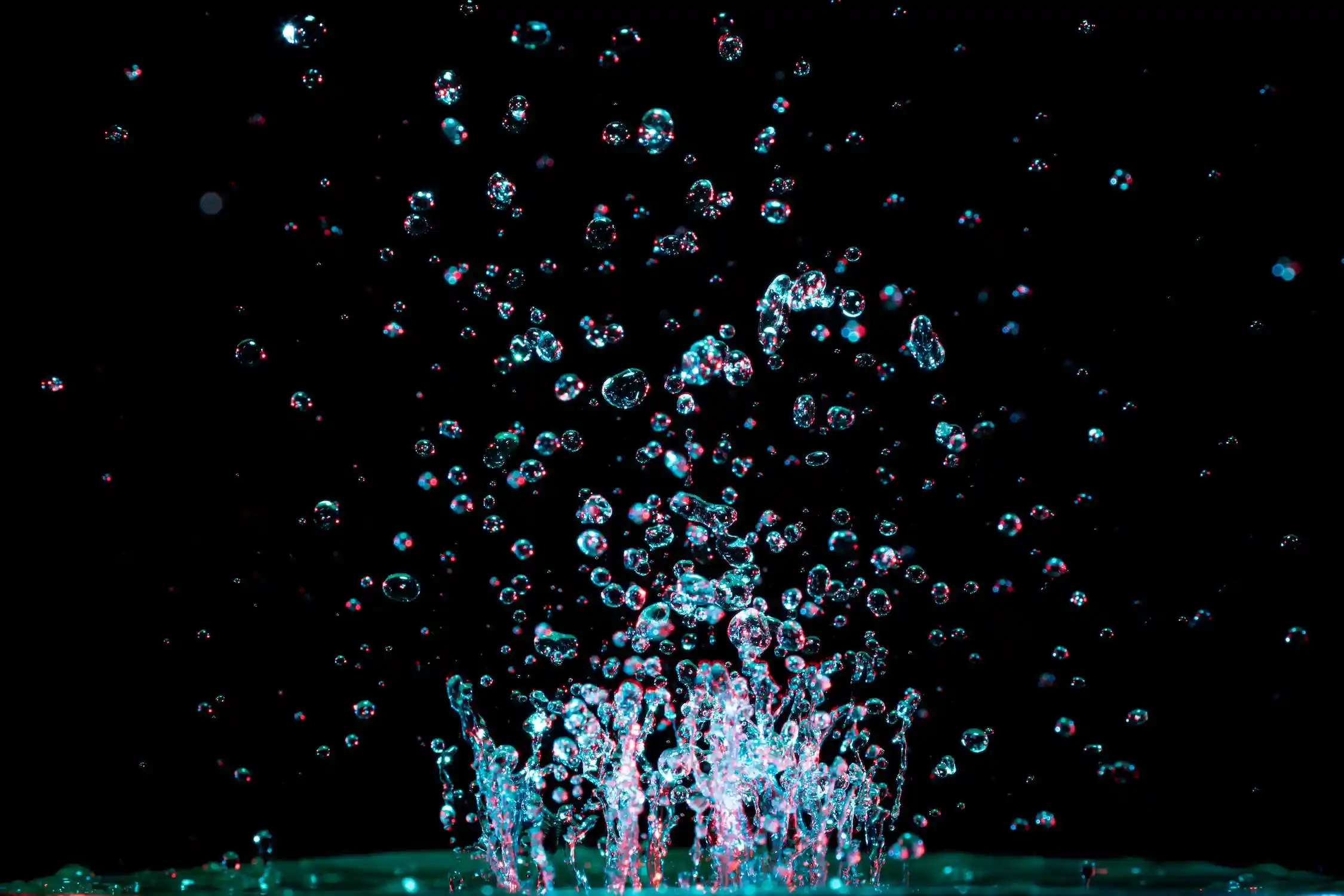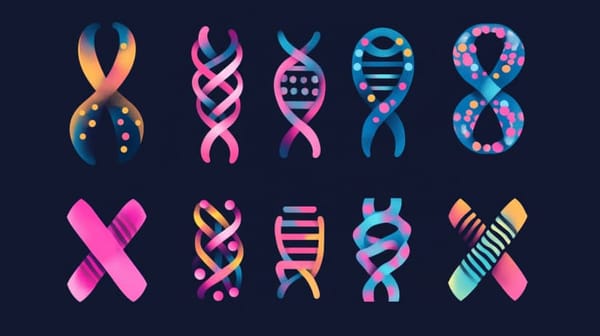Dry fasting is full of potential dangers. It's definitely one of the scariest things you can do as a human being. Some people would rather jump out of a plane and skydive than dry fast.

The idea of high-risk high-reward comes into mind. I would argue that dry fasting is 100x safer than performing riskier exercises like scuba diving, sky diving, and even taking drugs or alcohol. If done correctly, it is the most powerful form of fasting.
What is dry fasting?
Dry fasting is a type of fasting where individuals abstain from both food and water for a certain period. Unlike traditional fasting, which restricts food intake, or water fasting, which restricts water intake, dry fasting requires the body to rely on its internal water reserves and metabolic reactions for energy.
With roots dating back to ancient times for religious and spiritual purposes, dry fasting has potential health benefits such as reducing inflammation, improving metabolic health, and increasing longevity. However, the risks, including dehydration, kidney stones, and urinary tract infections are there if you don't approach it correctly.
When done properly, dry fasting can contribute to overall physical and mental well-being. It is the strongest type of fasting available, and some healing mechanisms can only occur while dry fasting. A 7-day dry fast is comparable to a 21-day water fast.
Dry Fasting and Dehydration Danger
I think we can all agree that dehydration is the main concern when it comes to dry fasting and the dangers associated with it. We all picture someone fainting trying to walk around on day 3. But how come so many people have proven again and again, that they can go well past 10 days of no food and no water? Let's dive a little deeper and take a look.
Now, I'm not claiming to have all the answers, but let's consider some factors together. The human body is an incredibly complex organism, and we can only do our best to understand its needs, wants, and abilities. When it comes to dry fasting, we need to approach it with an open mind, throwing away preconceived notions about water. Throw away that "3-days-without-water-equals-death" concept that I'm sure you're struggling with.
During a dry fast, it's true that without sufficient water intake, the body may struggle to function correctly. This can lead to various health issues, ranging from mild symptoms like dizziness and fatigue to more severe complications like kidney problems.
A study called "Effects of Hydration Status on Cognitive Performance and Mood" highlights the importance of proper hydration for maintaining cognitive performance and mood. They had participants complete tests, and the results showed that even mild dehydration had some sort of negative effect. The participant scored lower when dehydrated. HOWEVER, it's very important to acknowledge that dry fasting, when approached responsibly, may not necessarily result in dehydration.
In the ketosis of fasting, urea is reduced, and metabolic water is increased, such that water intake needs are minimised.
— L. Amber O'Hearn (@KetoCarnivore) May 30, 2020
Cahill, George F. “Starvation in Man.” New England Journal of Medicine 282, no. 12 (March 19, 1970): 668–75. https://t.co/Kjq6K6KDCN. pic.twitter.com/Qz7kQGkPG3

If you've dry fasted before, you may know what I am talking about. That beautiful feeling of mental clarity and sharpness. There's definitely something there that goes against this study. Personally, I can guarantee that I think quicker while dry fasting, but that may have to do with a lot of fasting state mechanisms that are activated, that the study participants did not have. If you're in a fed state, where the body requires water for digestion, it starts to make sense that dehydration will play an extremely important role in making sure everything runs smoothly. Change that up to a fasted state, and the tables turn.
You see, our bodies are quite resourceful. When deprived of external water sources, they can tap into internal water reservoirs, including the water produced during the breakdown of fat cells.
This process, known as metabolic water production, has been well documented in scientific literature, such as a study by Loucks (2007) called "Water Metabolism in the Physiology of Sports", which highlights the body's ability to generate water through metabolism.
In that study, we are shown that when athletes' bodies required additional water, they were able to produce it themselves WITHOUT having to drink more. The mechanisms described here attribute it to the breakdown of glycogen and fat. We already know this occurs during ketosis and is direct proof that this mechanism is present during dry fasting too.
Now, I'm not saying that metabolic water production can entirely replace the need for external hydration. But I believe that our bodies can adapt to temporary periods of dry fasting, especially when we approach it gradually and with caution. It's essential to listen to your body and recognize when it's time to break the fast.

For those new to dry fasting, I cannot stress enough the importance of starting slow. Begin with water fasting, and as you gain experience, you can ease into dry fasting. Remember, we're all unique, and our bodies respond differently. I've completed an 11-day dry fast to heal long Covid, but that doesn't mean everyone should jump into such an extended fast right away.

It's also worth mentioning that proper hydration before and after a dry fast is critical. Rehydrating with water and electrolytes after breaking the fast can help mitigate the risk of dehydration-related complications. But not all electrolytes should be consumed after a dry fast. This is where knowledge and experience are key.
This is why it is always beneficial to have a coach guide you. Feel free to message the dry fasting club through Instagram or Twitter when seeking a coach. I may be able to help you, but usually, due to lack of time, I can recommend some other great coaches. Paying a fee to make sure you are properly guided is extremely beneficial, can save you months of trial and error, speed up recovery, efficiency, and prevent damage.
Dehydration dangers on a dry fast
When I tried to convince you that you actually create water during a dry fast through a process called metabolic water, I wasn't joking. However, like I mentioned earlier, caution and safety is key.
There are in fact ways that you can fall into bad situations with dehydration. These usually occur when you overdo it and attempt risky behavior. What are risky behaviors? Let's take a look.
Dangers of Sauna while on a dry fast
Terrible idea. The overall consensus is to avoid Sauna use, but nevertheless, a lot of people still do it. It’s important to remember that the longer you fast, the more dangerous high temperatures become.
Your body needs to keep up with replenishing itself with metabolic water. Sauna use during these stages can put your body into severe dehydration and affect the kidneys and heart.

Dangers of Exercising too intensely while on a dry fast
When you exercise too hard on a dry fast, you are pushing your body to sweat, and therefore to perspire. You end up losing a lot of water because of this. Sometimes, if the activity is too much, and your body is already low on water, you will enter into a danger zone of dehydration. Do your best to avoid this.
Dangers of Entering the fast while already dehydrated
Don't start a dry fast when you are already dehydrated. Eating a large meal, and then not hydrating is a recipe for a disaster. Your body requires 1-2 days to enter ketosis and fat metabolism while dry fasting (longer if you're water fasting, but hydration is not a key issue there).
If your body is already dehydrated with only glycogen holding on to water, then you won't survive the ketosis switch without possible damage. Always hydrate before, however, stay away from overdosing on sodium.

Danger of Too many dry fasts too quickly
Too many dry fasts too quickly will mean that you are not refeeding the correct amount of time in between fasts. Draining your nutrients and trace minerals without being able to successfully replenish them with varied meals can spell disaster.
It's always vitally important to make sure you eat enough varied foods and take a multivitamin plus a few other stack dependant vitamins and minerals.
Mineral Deficiency Dangers while Dry Fasting
There are many symptoms that can occur as your body becomes more and more deficient in minerals. This is an important danger of dry fasting, but also a danger for any for of fasting. Knowing what to look out for is important, and that's why beginners really benefit from a coach or mentor who knows the warning signs.
Endolymphatic hydrops - A potassium deficiency
A few people I've worked with and coached had developed pressure in their ears. Ascribing the pressure to a feeling of being underwater. Usually resolved with breaking the fast and CORRECTLY refeeding.
Is it normal at all for your ears to get blocked and feel like you’re talking underwater? Feels like I can’t clear my ears because my throat is too dry
This fluid, regulated by the endolymph sac, contains water, sodium, potassium, chloride, and other electrolytes. Damage to the inner ear can alter endolymph fluid volume and composition, resulting in symptoms such as ear pressure, hearing loss, tinnitus, and balance problems. While individuals with Ménière's disease experience significant endolymphatic hydrops, not all cases progress to this disease.
Causes include head trauma, infection, inner ear degeneration, allergies, dehydration, electrolyte loss, and, rarely, benign tumors like endolymphatic sac tumors.
Ménière's attacks arise from the increased endolymphatic volume, causing a temporary membrane leak between potassium-rich endolymph and potassium-poor perilymph. The mixed fluids around vestibular sensory cells result in temporary electrical blockage, loss of sensory function, and vertigo due to altered vestibular nerve firing and signal processing.
Diagnosis and treatment methods are still being researched, but a low salt, low sugar diet, hydration, corticosteroids, diuretics, and caffeine avoidance may help.
Dry Fasting and Diabetes Danger
For individuals with diabetes, especially those who require insulin, dry fasting might exacerbate their condition due to the stress it places on the body. According to a study by Bravis et al. (2009), fasting can increase the risk of hypoglycemia in people with type 1 diabetes.
Additionally, a study by Alabbood et al. "The Effect of Intermittent Fasting during Ramadan on Diabetes Control in Type 2 Diabetes Mellitus Patients" showed that fasting could lead to hyperglycemia in some individuals with type 2 diabetes.
One study focuses on short-term modified fasts, and the other on comparing different medications during Ramadan. In fact, it's important to remember that there are just as many, if not more studies that support fasting for type 2 diabetes. Once we enter type 1 territory, all bets are off.
However, it's clear that we are entering a pandemic of pre-diabetics and type 2 diabetics. In this case, we have enough evidence to suggest that fasting is a very promising, if not the best, solution to avoid diabetes.
Water Fasting, Dry Fasting, Eating Right & Exercise Helped Me Beat Type 2 Diabetes! 💯
— Rudolph Manor (@Rude892) April 24, 2022
One notable study by Longo et al. (2017) investigated the effects of periodic fasting on diabetes. This study found that fasting mimicking diets (FMDs), which involve consuming low-calorie meals for a short period, resulted in improved pancreatic cell function and insulin sensitivity in both mice and human subjects.
The researchers concluded that FMDs might have potential in reversing insulin resistance and promoting the regeneration of insulin-producing cells in the pancreas, thereby potentially helping in the management of type 1 and type 2 diabetes.
Dry Fasting and Atherosclerosis Danger
Atherosclerosis, a condition characterized by the buildup of plaque in the arteries, is a significant contributor to cardiovascular diseases. This buildup can narrow the arteries, impede blood flow, and potentially lead to severe complications like heart attacks and strokes.
When it comes to atherosclerosis, dry fasting may also pose risks. A study by Michalsen et al. (2003) suggests that short-term fasting can lead to an increase in serum cholesterol levels. Since elevated cholesterol is a risk factor for atherosclerosis, individuals with this condition should approach dry fasting with caution.

Although short-term fasting can lead to increased serum cholesterol levels, it's important to note that there is a multitude of studies showing improved cardiovascular health following fasting.

"Short-term modified alternate-day fasting: a novel dietary strategy for weight loss and cardioprotection in obese adults". This study investigated the effects of short-term modified alternate-day fasting on weight loss and cardiovascular disease risk factors in obese adults. The results showed that intermittent fasting could lead to significant weight loss and improvement in cardiovascular risk factors, suggesting potential benefits for individuals at risk of cardiovascular disease.
These studies contradict themselves and create a situation where you don't truly know the right answer. It's always better to play it safe, but it's also important to look at the anecdotal evidence. Fasting, and in this case, dry fasting, seems to make people feel better overall, and that includes their heart health.
The Risk of Poisoning due to Protein breakdown
During a dry fast, the body enters a state of survival, relying on stored energy reserves and breaking down proteins to produce energy. This process is called gluconeogenesis, which involves converting non-carbohydrate sources, such as proteins and amino acids, into glucose. Although gluconeogenesis is a natural and necessary process, it can lead to the production of potentially harmful byproducts if not managed effectively.
The breakdown of proteins during fasting results in the release of nitrogen-containing compounds known as urea and ammonia. Under normal circumstances, the liver converts ammonia into urea, which is then eliminated through the kidneys as urine.
However, during a dry fast, the lack of water intake can impair kidney function and hinder the effective removal of these waste products. As a result, urea and ammonia may accumulate in the body, leading to a condition called azotemia. If left unchecked, azotemia can progress to uremia, a life-threatening condition characterized by the buildup of waste products in the bloodstream.
To minimize the risk of poisoning during a dry fast, it is essential to ensure that the body can effectively eliminate protein byproducts. One way to do this is by incorporating periods of water fasting or consuming small amounts of water during a dry fast.
This can help support kidney function and facilitate the removal of waste products, thus reducing the risk of azotemia and uremia. Additionally, practicing deep breathing exercises and mild physical activity can aid in promoting the lymphatic system's function, which plays a vital role in removing toxins and waste from the body.
In our case, we will have to focus on deep breathing exercises, light physical exercises, and organ massages. This is why walking is the most recommended activity during a dry fast.
It has the power to turn everything back around when you are feeling bad. Organ massages are conducted at all retreats, and meditation is both physical and mental healing. you can perform your own organ massages during your dry fast by doing gut smashing. Remind me to write about it, for now, I'll put a placeholder below.
[Organ massages and Dry Fasting | What is Gut Smashing?]
Dangers of Kidney Injuries while Dry Fasting
Kidneys filter your blood and remove waste via urine. Naturally, when you talk about dry fasting, you start thinking about your kidneys because of the relationship of water to urine creation. If you are depriving the body of water during your extended fast, your body may not have enough water to allow for the kidneys to function properly.
This type of reasoning makes logical sense, however, when it comes to real-world experiences it seems to go against common sense. Countless individuals have successfully dry fasted for many days. Some even go as far as 11 days. Urine creation does not stop, but rather, steadily continues after dropping off quite significantly after 24 hours.
In fact, some studies on renal function and kidney disease during the month of Ramadan have shown that dry fasting did not negatively affect the kidneys.
When it comes to healthy adults, a 5-day food and water deprivation study showed that the body’s renal responses stabilized and were kept healthy throughout the 5 days.
It goes to show that when it comes to healthy individuals who dry fast for 5 days or less, the kidneys should be able to handle it quite well.
Eating anything will cause inflammation. Fasting is the oldest healing technique humans use. There are a million excuses not to fast, but that shouldn't stop anyone from trying. I had terrible kidney stones from dry fasting, but now they're gone. Risk/Reward.
— Cosmic Saxon (@Bearalexander) October 9, 2018
Someone's conditions need to be taken into consideration. Look at the article [Dry Fasting Contraindications | Who should NOT dry fast] If someone is extremely toxic with years of toxicity, or severely ill and/or has damage to filtration organs, etc. then you cannot start with dry fasting. You are required to talk with a water-fasting specialist and start slow. As the poster said, when your eliminating organs are too weak, it is not wise to dry fast. Even though dry fasting can help with a lot of issues, including kidneys, it should not be done by critically ill people. Build up to it, safely, cautiously, and respectfully.
Read more about Kidney Injuries and Dry Fasting below.

Kidney Damage and Excess Protein Danger
Dr. Filinov, one of the most well-known Russian doctors who popularized dry fasting, was asked about kidney damage during a dry fast. His response was that he actually believes that a dry fast can help cleanse and detoxify the kidneys as opposed to damaging them.
Of course, it's super important that you keep in mind that very serious kidney diseases are one of the main contraindications for dry fasting. If your kidneys are damaged to the point that you are terminally ill, this practice is most definitely not for you. You'd be better advised to look into specialists in water fasting. Of course, if your main worry is kidney stones and kidney damage, Filinov states that the detoxification and the concentrated urine help in flushing kidney stones, and other waste materials.
It's also important to be aware that the belief that excess protein is what causes kidney damage is mostly due to the belief that the extra protein will place additional stress on the kidneys. If you have extra protein that needs to be filtered, it makes logical sense that the kidneys will be under extra strain, and over time it can cause damage. However, that's like saying you will be dry fasting every other day, or for weeks on end every month. That's usually not the case, and in most anecdotal experiences, it seems that dry fasters actually improve their kidney function.
This goes hand in hand with research findings from a few studies (they are linked in the sources below).
"The impact of protein intake on renal function decline in women with normal renal function or mild renal insufficiency" found that there was no significant association between high protein intake and kidney damage in healthy individuals.
"Dietary protein intake and renal function. Nutrition & Metabolism, 2(1), 25." found that the human body can adapt to varying dietary conditions. The experts argue that the kidneys can adjust and adapt to higher protein intake. They mention well-hydrated, but it's important to remember that the body is creating metabolic water during the process. This is an additional reminder that you should not be doing any strenuous activity where you sweat during a dry fast. There is no reason to speed up water loss and risk kidney injury. Your body has a maximum rate of metabolic water creation, and if you try to surpass its ability to create water, you will land yourself in a dangerous situation.
Aspartate Aminotransferase (AST) and Alanine Aminotransferase (ALT) Has anyone experienced similarities with doing a blood panel and kidney profile panel? I'm pretty sure that you can see irregularities for weeks after an extended dry fast, but it all comes back to normal and… pic.twitter.com/jwcdBVTzfI
— Dry Fasting Club (@DryFastingClub) April 6, 2023
It is also crucial to listen to your body and recognize the signs of potential protein poisoning.
Symptoms such as nausea, vomiting, fatigue, confusion, and shortness of breath may indicate the buildup of harmful substances in the body. If you experience these symptoms during a dry fast, it is essential to seek medical advice and consider stopping the fast to prevent further complications.
Danger of not ending the dry fast when signs appear
When certain signs appear, you need to be wary and attentive. Pushing through these symptoms can be dangerous. Dry fasting is a skill that keeps improving the more you chip away at it. Think of your health as being protected by an army of parasites. You can't get rid of everything at once.
Sometimes you may be trying to heal something specific during your dry fast but your body may have other priorities. In this case, it simply means that you will need to recharge and come back for another one in the near future. Don't push yourself too hard, so that you don't lose that chance. Some of the most common signs that you should keep an eye out for include:
- Pain in the liver and kidney that doesn't resolve after a walk, stretch, and organ massage
- Heart rate of over 110-120 BPM when resting
- Feelings of fainting and severe nausea that don't go away
- When you can't walk short distances (200-300m)
- If you haven’t produced urine in 12 hours or longer while dry fasting
Sources
Study: "Effects of Hydration Status on Cognitive Performance and Mood" Authors: Natalie A. Masento, David T. Golightly, Mark T. Ormerod, Robin L. Kennedy, Philippa A. Jackson Journal: British Journal of Nutrition, Volume 111, Issue 10, May 2014, pp. 1841-1852 DOI
Study: "Water Metabolism in the Physiology of Sports" Author: Eric F. Loucks Journal: Sports Medicine, Volume 37, Issue 1, January 2007, pp. 1-16 DOI
Study: "Effects of short-term modified fasting on sleep patterns and daytime vigilance in non-obese subjects: results of a pilot study" Authors: Andreas Michalsen, Christian Kirschning, Stefanie Lüdtke, Jost Langhorst, Rainer Stange, George B. Dobos, and Thomas Rampp Journal: Annals of Nutrition & Metabolism, Volume 47, Issue 5, October 2003, pp. 194-200
Study: "The Effect of Intermittent Fasting during Ramadan on Diabetes Control in Type 2 Diabetes Mellitus Patients in Mosul, Iraq" Authors: Marwan H. Alabbood, Ayad A. Khalifa, and Ezzaddin K. Jasim Journal: Pakistan Journal of Nutrition, Volume 16, Issue 9, September 2017, pp. 675-679
Knight, E. L., Stampfer, M. J., Hankinson, S. E., Spiegelman, D., & Curhan, G. C. (2003). The impact of protein intake on renal function decline in women with normal renal function or mild renal insufficiency. Annals of Internal Medicine, 138(6), 460-467.
Martin, W. F., Armstrong, L. E., & Rodriguez, N. R. (2005). Dietary protein intake and renal function. Nutrition & Metabolism, 2(1), 25.
Poortmans, J. R., & Dellalieux, O. (2000). Do regular high protein diets have potential health risks on kidney function in athletes? International Journal of Sport Nutrition and Exercise Metabolism, 10(1), 28-38.
Kalantar-Zadeh, K., Fouque, D., Kopple, J. D., Cano, N., Chauveau, P., Cuppari, L., ... & Pecoits-Filho, R. (2020). Understanding sources of dietary phosphorus in the treatment of patients with chronic kidney disease. Journal of Renal Nutrition, 20(2), 123-131.






